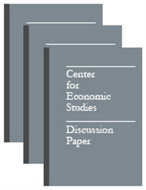From Marcy to Madison Square? The Effects of Growing Up in Public Housing on Early Adulthood Outcomes
From Marcy to Madison Square? The Effects of Growing Up in Public Housing on Early Adulthood Outcomes
Abstract
This paper studies the effects of growing up in public housing in New York City on children’s long-run outcomes. Using linked administrative data, we exploit variation in the age children move into public housing to estimate the effects of spending an additional year of childhood in public housing on a range of economic and social outcomes in early adulthood. We find that childhood exposure to public housing improves labor market outcomes and reduces participation in federal safety net programs, particularly for children from the most disadvantaged families. Additionally, we find there is some heterogeneity in impacts across public housing developments. Developments located in neighborhoods with relatively fewer renters and higher household incomes are better for children overall. Our estimate of the marginal value of public funds suggests that for every $1 the government spends per child on public housing, children receive $1.40 in benefits, including $2.30 for children from the most disadvantaged families.
Others in Series
Working Paper
Working Paper
Working Paper




